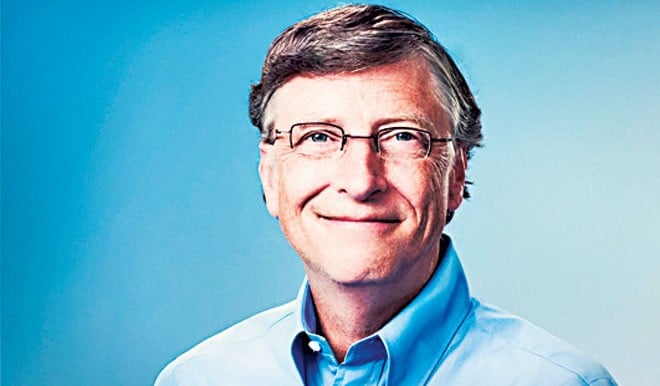
We’re halfway through the school semester, and for many students, it’s crunch time

We’re halfway through the school semester, and for many students, it’s crunch time. Act now, and you just might be able to cinch that A grade or prevent yourself from getting that dreaded D. Instep brings to you the success secrets of some of the world’s most famous geeks (you may not even know that some of Hollywood A-listers have serious smarts too!). Follow their footsteps and you may just change around your school year.
Put your blinders on
Want to master a subject? Put you blinders on, like Bill Gates did in the early days of Microsoft. His co-founder Paul Allen tells that Gates would focus on one task at a time with total discipline. "You could see it when he programmed," Allen revealed in The Innovators, a must-read book that charts the history of the digital revolution, "He would sit with a marker clenched in his mouth, tapping his feet and rocking; impervious to distraction." While you may have to divide your attention amongst several items on your to-do list, especially during exam season, it’s important to give each task your full focus - it is, after all, one of the secret to Bill Gates’ success.
Public speaking 101
Nervous about presenting your mid-term project? Then, it’s time to take tips from the pro. Steve Jobs’ product presentations are the stuff of public speaking legends, so it makes sense to take a leaf from the Apple founder’s book. For starters, he was famously passionate about his subject, but not all of us get to present on what we spent months or years designing. So if you find it hard to match Jobs’ enthusiasm, help your audience keep interested in what you’re saying by sticking to the Jobs formula: build simple visual slides (Jobs’ iPhone presentation had a total of 19 words spread over 12 slides!) and avoid looking at your notes (at most, he kept brief pointers on flashcards tucked out of the audience’s view). Also, consider sticking to the rule of three. Jobs instinctively understood that the number "3" is one of the most powerful numbers in communications. A list of 3 things is more intriguing than 2 and far easier to remember than 22.
The growth mindset
Is maths not your strongest suit? Or do you feel that arts class is a waste of time because you simply can’t draw? Some skills you’re born with, but the rest you have to actively develop, just like Mark Zuckerberg who epitomises self-improvement. In 2005, when some Facebook investors and employees began criticizing Zuckerberg’s performance as CEO of the company, Zuckerberg didn’t get defensive. Instead, he took "CEO Lessons" from a retired former CEO. Similarly, Zuckerberg is currently hell-bent on learning Chinese, a notoriously difficult language to pick up in adulthood. By studying the language every day, he knows that with effort he can improve. That growth mindset -- where you take effort, rather than talent, to be the driver of your progress -- is thought to be a great predictor of success in academics (… psst, and relationships!)Don’t be shy to speak up
Does the lack of fluency keep you from speaking up in class? According to Stephen Hawking, there are no excuses not to speak. The astrophysicist uses his eye or his cheek to control his voice synthesiser and selects each letter one at a time. He is still able to make public appearances and people focus on the content of his lectures rather than the sound of the voice synthesiser. People listen to what you say and not just how you say it. While it’s important to use the correct grammar and vocabulary, it’s more important to make sure that what you are saying is interesting.
Circle of positivity
Asked what advice he would have given himself in high school, Ashton Kutcher said he wished he would have realized no one legitimately feels like they fit in at high school. "The people who are really trying to make you feel like you don’t are probably the people who don’t feel like they fit in the most," he said. Kutcher encourages students to make a pact with their friends to make everyone feel good about themselves as individuals. "You can have a really connected community within your school and build a really awesome support group for yourself," he said. "It’s OK to be an individual."
Exercise your literary muscles
The most important thing for any aspiring writer, George R.R. Martin says, is to read! And not just the sort of thing you’re trying to write, be that college essays, articles for the newsletter, your own comic book, whatever. You need to read everything. Read fiction, non-fiction, magazines, newspapers. Read history, historical fiction, biography. Read mystery novels, fantasy, SF, horror, mainstream, literary classics, adventure, satire. Every writer has something to teach you; you can learn what not to do from bad books.
It’s also important to write. Write every day, even if it is only a page or two. The more you write, the better you’ll get. If you don’t exercise those "literary muscles," you’ll never develop them.